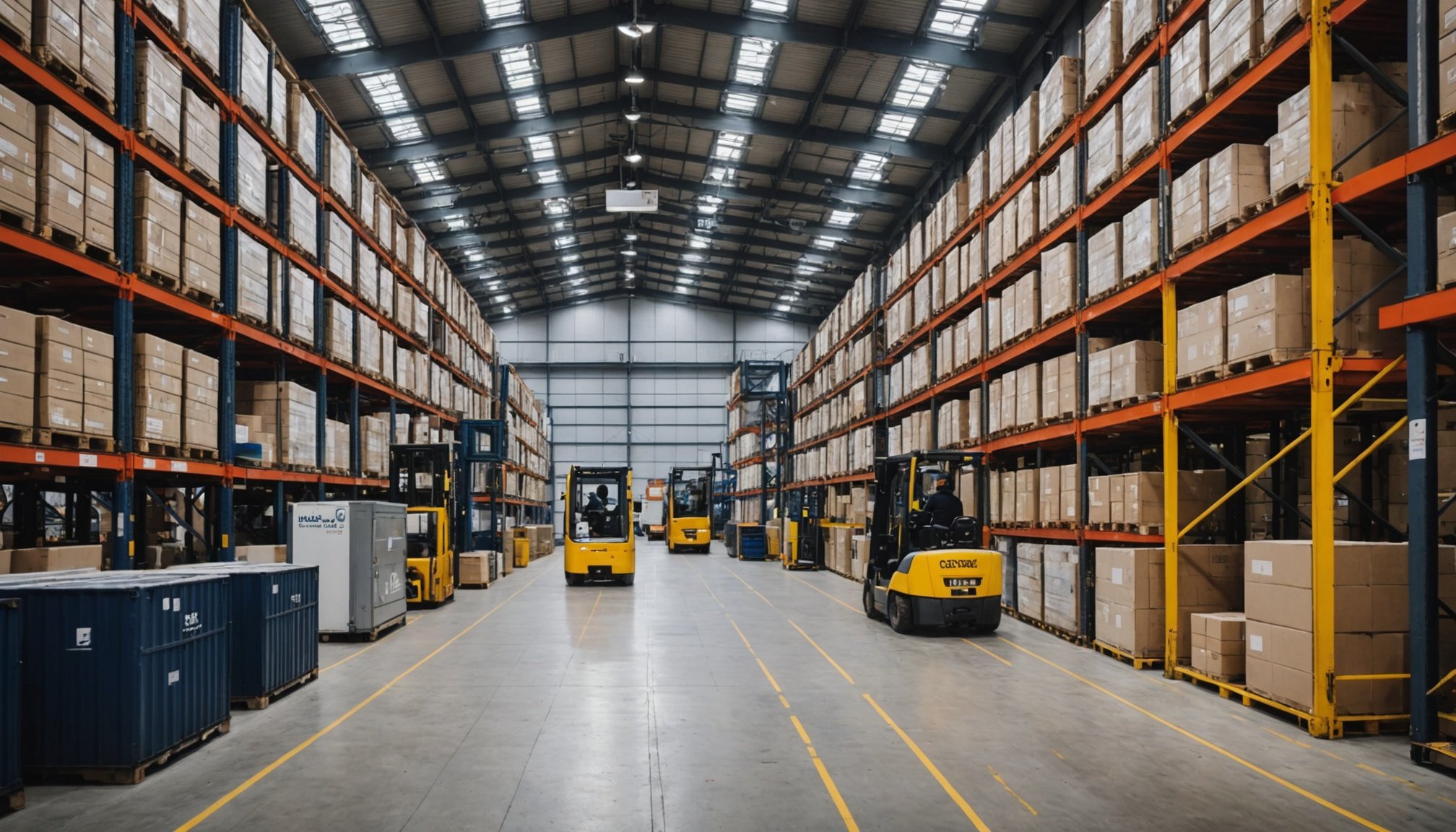Technology Adoption in UK Logistics
In recent years, UK logistics firms have embraced technology adoption as a key driver of competitive advantage. The integration of logistics innovation through digital tools has transformed how companies operate, leading to enhanced efficiency and customer satisfaction.
One significant change is the adoption of cloud computing and the Internet of Things (IoT). These technologies facilitate seamless data exchange and monitoring, boosting logistics efficiency. For instance, cloud computing allows for real-time data access and improved communication across various points of the supply chain. IoT devices, including sensors and GPS trackers, enable precise tracking and monitoring, optimizing route management and reducing delivery times.
Also read : Effective Tactics for Launching a Winning Customer Loyalty Program in York’s Retail Market
Several cases demonstrate successful technology integration within the sector. One UK-based logistics company significantly cut costs and improved delivery accuracy by implementing IoT solutions. By utilizing connected devices, they monitored vehicle conditions and optimized maintenance schedules, preemptively addressing any issues before they impacted their operations.
Similarly, another firm that adopted cloud-based systems witnessed a substantial increase in operational efficiency. These systems provided centralized data access, facilitating instant collaboration and decision-making across the business. This comprehensive use of digital tools underscores the integral role technology now plays in modernizing the logistics sector.
Also read : Effective Tactics for Seamlessly Implementing Digital Payment Solutions in Bristol’s Non-Profits
Automation Trends
Advancements in automation are revolutionizing the UK logistics industry, driving significant efficiency gains and reshaping the sector. Cutting-edge technologies, such as robotics, are increasingly being deployed to streamline operations, reduce costs, and enhance productivity.
Robotic systems are playing a crucial role in tasks such as warehouse management, sorting, and packaging. By automating these processes, logistics firms benefit from increased precision and operational speed, significantly reducing the likelihood of human error. These systems can work around the clock, providing a noteworthy spike in productivity and reducing labor costs.
The impact of automation on labor dynamics is profound. While it optimizes routine tasks, there are growing concerns about potential job displacement. However, many firms are utilizing automation to complement human workers, focusing on reskilling and upskilling employees to work alongside the new technologies.
One notable case of successful robotic implementation involves a UK company that integrated autonomous mobile robots (AMRs) into its warehouse operations. This integration led to a 40% increase in sorting speed and drastically improved order accuracy, showcasing the potential of robotics to transform logistics processes.
Overall, while automation presents challenges, its benefits in enhancing productivity and efficiency are undeniable, heralding a new era of innovation in the logistics industry.
Enhancing Supply Chain Visibility
Harnessing supply chain visibility is crucial for modern logistics, providing a substantial edge in optimizing operations. Real-time insight into shipments ensures end-to-end transparency and helps anticipate and mitigate disruptions. Implementing advanced tracking systems is a key strategy for achieving this level of visibility, allowing firms to monitor shipments globally.
Innovative technologies such as IoT devices and RFID tags play a vital role. These devices provide constant updates on the location, condition, and progress of goods in transit, enabling companies to make informed decisions on the fly. This transparency not only optimizes routing and scheduling but also significantly reduces the risk of unforeseen delays.
Furthermore, enhanced visibility invariably boosts customer satisfaction by meeting modern consumer expectations for accurate delivery timings and service predictability. Customers are increasingly demanding transparency in the logistics process, expecting real-time updates and precise delivery windows. Meeting these expectations through improved tracking and monitoring systems results in increased loyalty and trust.
Overall, emphasis on supply chain visibility translates into enhanced operational efficiency. By adopting these technologies, companies can streamline workflows, reduce overhead costs associated with delays, and improve the overall customer experience. The transformation fosters a proactive approach to managing logistics challenges, strengthening the competitive position of firms in the UK logistics sector.
Customer Satisfaction and Digital Success
In the logistics sector, the link between digital initiatives and enhanced customer satisfaction is indelible. Using digital services, companies aim to provide a seamless user experience that meets and exceeds customer expectations. Personalised services, tailored to individual customer needs, can substantially elevate satisfaction levels.
Through digital platforms, companies can offer customised delivery options, real-time tracking, and instant updates. These services cater to contemporary consumer demands for immediacy and transparency. By using advanced analytics, logistics firms are better positioned to anticipate customer requirements and adapt their services accordingly.
Consumer feedback plays a crucial role in guiding the digital transformation journey in logistics. Data gleaned from surveys and reviews helps firms understand what customers value most. This insight is invaluable for refining digital strategies and enhancing service offerings. Addressing these needs directly contributes to a positive user experience, reinforcing consumer trust and loyalty.
Moreover, investing in digital technology allows logistics companies to streamline operations, reducing errors and delays. This efficiency not only boosts customer confidence but also sets a benchmark for service quality. Through such digital success, firms strengthen their reputation and maintain a strategic edge in a competitive market.
The Role of Data Analytics
Utilising data analytics in the logistics industry has become indispensable for making informed strategic decisions. Companies leverage analytics to enhance decision-making, keeping an eye on vital performance metrics which help in monitoring operational efficiency. By tracking these metrics, logistics firms can pinpoint areas needing improvement, allowing for targeted interventions that streamline processes and reduce inefficiencies.
Implementing KPIs, such as delivery time accuracy, order accuracy, and vehicle utilization rates, provides a clearer picture of performance. These indicators are instrumental in assessing the efficacy of operations and identifying potential areas for enhancements. Data analytics transforms these metrics into actionable insights, enabling logistics companies to adapt swiftly to market changes and consumer demands.
In a real-world context, a UK logistics firm utilised data analytics to revolutionise its distribution network. By analysing shipment data and adjusting strategies based on performance metrics, the firm reduced delivery times by 15% and enhanced route optimization. This real-life application of data analytics not only improved their operational performance but also boosted customer satisfaction rates significantly.
Decision-making, underpinned by robust analytics, empowers logistics companies to remain competitive, agile, and highly efficient in a rapidly evolving industry landscape.






